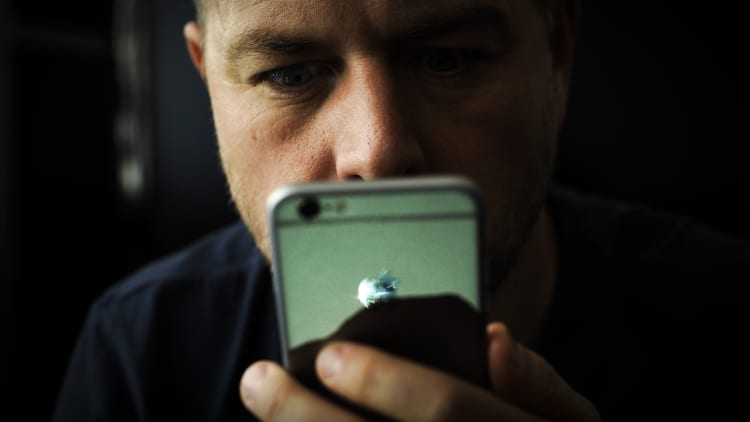For Cyber Monday, the internet is full of online shopping land mines. It's easy to get sucked into to online shopping, particularly around the holidays. An estimated 68.7 million people will shop on Cyber Monday this year, according to a 2019 National Retail Foundation survey. And last year, Americans spent $6.9 billion on Cyber Monday alone, which is a 19.3% increase from 2017.
While shopping more than usual this month, or making some uncharacteristically extravagant purchases on Cyber Monday is normal, extreme online shopping can become a problem for some.
Compulsive buying disorder, also known as "shopping addiction" or "buying and shopping disorder," is a mental health condition that affects about 5% of the population, according to a 2016 study. It is characterized by "extreme preoccupations with and cravings for buying and shopping, and by irresistible and identity-seeking urges to possess consumer goods," explains Astrid Muller, a psychology professor at Hannover Medical School in Germany, who studies the disorder.
So what separates harmless shopaholics from those with a problem?
People with a shopping addiction may shop to a persistent, excessive and impulsive degree regardless of the financial or psychological consequences. They may buy more than they can afford, or shop for things that they have no use for, Muller tells CNBC Make It.
Most people are familiar with "retail therapy" or shopping to relieve sadness. Similarly, excessive shopping is an outlet that people use to regulate their emotions, Muller says. For example, they shop to get pleasure, relieve negative feelings or cope with stress. A person who's addicted to shopping doesn't just shop to get a deal on a product they need or want; they do it to improve their mood, gain social recognition and improve their self-image.
If your typical shopping patterns and habits meet several of the criteria — strong cravings, shopping to regulate emotions, not using purchased goods — then that's cause for concern, Muller says.

The rise of e-commerce has made buying and shopping disorder more severe in a few significant ways, Muller says. Most notably, the internet puts a "vast variety" of products at your fingertips, available to purchase immediately, she says. Online shopping also allows people to shop privately and hide their habits, she adds. On top of that, "personalized product information, pop-up advertising, immersive interfaces and easy credit payment systems," all make it harder to avoid online shopping, she adds.
"Seeing ads on Facebook for products or having shopping modules built into social media platforms may induce craving for online shopping," Muller says.
Technically, buying and shopping disorder isn't in the latest Diagnostic and Statistical Manual of Mental Disorders, the manual that's used to diagnose mental health conditions, simply because there hasn't been much research on the phenomenon. (Specifically, shopping doesn't seem to activate the brain's reward systems in the same way that drugs do.) But that doesn't mean that buying and shopping disorder isn't a true problem.
Many experts, including Muller, believe that buying and shopping disorder should be recognized as a formal mental health disorder due to the prevalence, and the way that it interferes with daily functioning. Beyond debt and overspending, there are a number of troubling long-term effects associated with buying and shopping disorder.
"In the long run, the recurrent breakdown in self-control leads to extreme distress, familial discord, clutter due to pathological hoarding of goods [and] impairment in important areas of functioning," Muller says.
Studies have shown that group psychotherapy is the most effective treatment for compulsive shopping. If you're concerned about your own shopping habits, consider finding a local group support network or talking to a mental health clinician.
Like this story? Like CNBC Make It on Facebook.
Don't miss:



